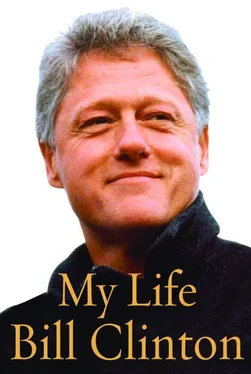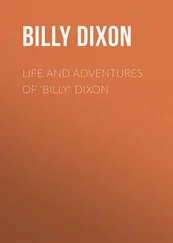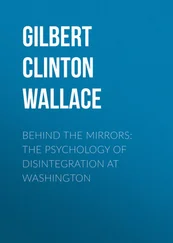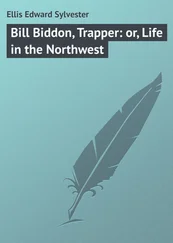We were having a Christmas reception at the White House that night, and I asked every lawyer who came through the receiving line if he or she had ever heard of such a ruling. No one had. The Court was to hand down another opinion shortly, on the underlying issue of whether the recount itself was constitutional. Now we knew they would kill it 5–4. I told Hillary that Scalia would never be allowed to write the second opinion; he had been too candid in this one.
On December 11, Hillary, Chelsea, and I flew to Ireland, to the land of my ancestors and the scene of so much of the peacemaking I had done. We stopped in Dublin to see Bertie Ahern, then went to Dundalk near the border for a massive rally in a city that was once a hotbed of IRA activity and was now a force for peace. The streets were bright with Christmas lights as the large crowd cheered wildly and sang “Danny Boy” to me. Seamus Heaney once said of Yeats: “His interest was to clear a space in the mind and in the world for the miraculous.” I thanked the Irish for filling that space with the miracle of peace. We went to Belfast, where I met with the Northern Irish leaders, including David Trimble, Seamus Mallon, John Hume, and Gerry Adams. Then we went with Tony and Cherie Blair, Bertie Ahern, and George Mitchell to a large meeting of both Catholics and Protestants in the Odyssey Arena. It was still somewhat unusual for them to gather together in Belfast. Some sharp disputes remained involving the new police force and the schedule and method of putting arms beyond use. I asked them to keep working on the problems and remember that the enemies of peace didn’t need their approval: “All they need is your apathy.” I reminded the audience that the Good Friday accord had given heart to peacemakers the world over, and cited the just announced agreement ending the bloody conflict between Eritrea and Ethiopia that the United States had helped broker. I closed by saying how much I had loved working with them for peace, “but the issue is not how I feel; it’s how your kids are going to live.”
After the event, my family flew to England to stay with the Blairs at Chequers and listen to Al Gore give his concession speech. The night before, at 10 p.m., the Supreme Court had ruled, 7–2, that the Florida recount was unconstitutional because there were no uniform standards for defining the clear intent of the voter for purposes of a recount, and therefore different vote counters might count or interpret the same ballots differently. Therefore, the Court said, allowing any of the disputed votes to be counted, no matter how clear the voters’ intent, would deny equal protection of the law to those whose ballots weren’t counted. I disagreed strongly with the decision, but I was heartened that Justices Souter and Breyer wanted to send the case back to the Florida Supreme Court to set a standard and proceed with the recount in a hurry. The electoral college was meeting soon. The other five justices in the majority disagreed. By 5–4, the same five justices who had stopped the vote count three days earlier now said it had to give the election to Bush because under Florida law the recount had to be finished by midnight on that day anyway.
It was an appalling decision. A narrow conservative majority that had made a virtual fetish of states’ rights had now stripped Florida of a clear state function: the right to recount votes the way it always had. The five justices who didn’t want the votes counted by any standard claimed to advance equal protection by depriving thousands of people of their constitutional right to have their votes counted even if their intent was crystal clear. They said Bush should be awarded the election because the votes couldn’t be counted in the next two hours, when, after already killing three days of recounting, they had delayed issuing the opinion until 10 p.m., to make absolutely sure the recount could not be completed on time. The five-vote majority didn’t make any bones about what it was up to: the opinion clearly stated that the ruling could not be used as precedent in future election law cases; its reasoning was “limited to the present circumstances, for the problem of equal protection in election processes generally presents many complexities.” If Gore had been ahead in the vote count and Bush behind, there’s not a doubt in my mind that the same Supreme Court would have voted 9–0 to count the votes. And I would have supported the decision.
Bush v. Gore will go down in history as one of the worst decisions the Supreme Court ever made, along with the Dred Scott case, which said that a slave who escaped to freedom was still a piece of property to be returned to its owner; Plessy v. Ferguson, upholding the legality of racial segregation; the cases in the twenties and thirties invalidating legislative protections for workers, like minimum wage and maximum workweek laws, as violations of the property rights of employers; and the Korematsu case, in which the Supreme Court approved the blanket internment of Japanese-Americans in camps after Pearl Harbor. We had lived through and rejected the premises of all those previous reactionary decisions. I knew America would also get beyond this dark day when five Republican justices stripped thousands of their fellow Americans of their votes, just because they could.
Al Gore gave a marvelous concession speech. It was genuine, gracious, and patriotic. When I called to congratulate him, he told me that a friend who was a professional comedian had joked to him that he had gotten the best of both worlds: he had won the popular vote and didn’t have to do the job. The next morning, after Tony Blair and I talked a bit, I walked outside, complimented Al, and pledged to work with President-elect Bush. Then Tony and Cherie accompanied Hillary, Chelsea, and me to the University of Warwick, where I gave another of my farewell speeches, this one on the approach to globalization our Third Way group had embraced: trade plus a global contract for economic empowerment, education, health care, and democratic governance. The speech also gave me a chance to publicly thank Tony Blair for his friendship and our partnership. I had treasured our times together and would miss them.
Before we left England, we went to Buckingham Palace, accepting Queen Elizabeth’s kind invitation to tea. We had a pleasant visit, discussing the election and world affairs. Then Her Majesty took the unusual step of accompanying us down to the ground floor of the palace and walking us out to our car to say good-bye. She, too, had been gracious and kind to me over the past eight years. On December 15, I reached an omnibus budget agreement with Congress, the last major legislative victory of my eight years. The education budget was especially good. Finally, I secured more than $1 billion to repair schools; the largest increase ever in Head Start; enough money to put 1.3 million students in after-school programs; a 25 percent increase in the fund to hire 100,000 teachers; and more funding for Pell Grants, for our Gear Up mentoring program, and for our efforts to turn around failing schools. The bill also included the New Markets initiative, a large increase in biomedical research, health-care coverage for welfare recipients and disabled people moving into the workforce, and the Millennium Debt Relief initiative.
John Podesta, Steve Ricchetti, my legislative aide Larry Stein, and our whole team had done a great job. My last year, when I was supposed to be a lame duck, had resulted in the passage of a surprising number of the State of the Union recommendations. Besides those mentioned above, Congress had passed the Africa-Caribbean trade bill, the China trade bill, the Lands Legacy initiative, and a large increase in child-care assistance to working families.
I was still deeply disappointed in the election outcome and concerned about the Middle East, but after the visit to Ireland and England and the budget victories, I was finally getting into the Christmas spirit. On the eighteenth, Jacques Chirac and Romano Prodi came to the White House for my last meeting with European Union leaders. By then we were old friends, and I was glad to receive them one last time. Jacques thanked me for supporting the growth of the EU and transatlantic relations. I responded that we had managed three great questions well: the growth and expansion of the EU; the expansion of NATO and the new relationship with Russia; and the problems of the Balkans. While I was meeting with Chirac and Prodi, the Middle East teams began talks at Bolling Air Force Base in Washington, Hillary received Laura Bush at the White House, and our family went house shopping in Washington. The people of New York had decided she wasn’t leaving town after all. Eventually we found a lovely house that bordered Rock Creek Park in the embassy area off Massachusetts Avenue.
Читать дальше












